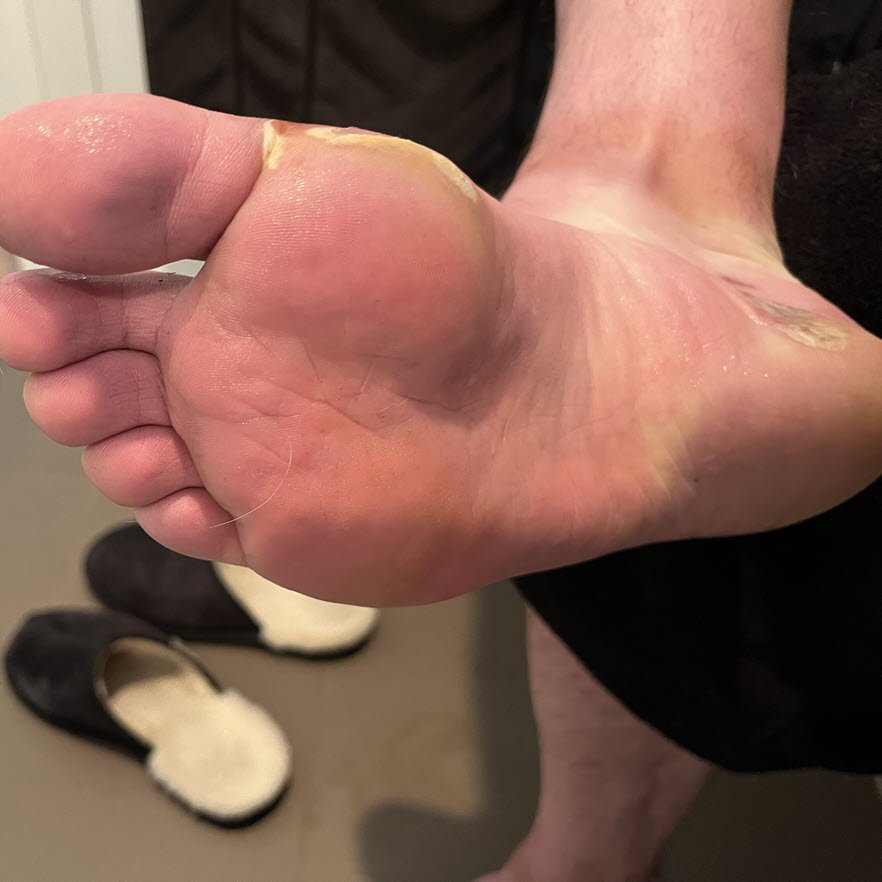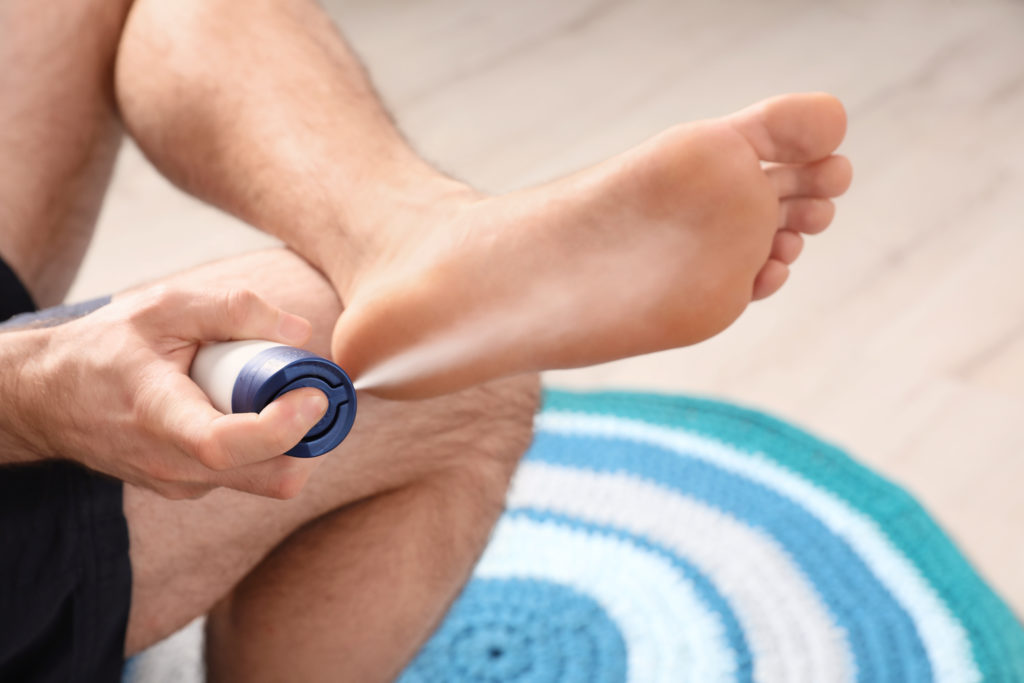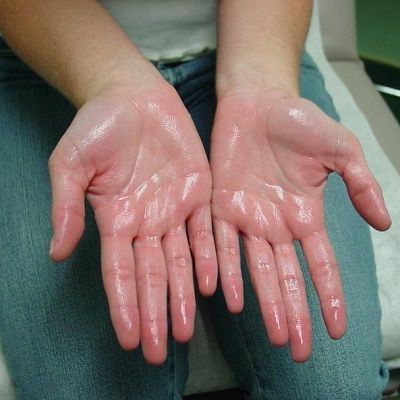Top Dermatology Treatments for Hyperhydrosis of Hands and Feet: What You Required to Know
Top Dermatology Treatments for Hyperhydrosis of Hands and Feet: What You Required to Know
Blog Article
Recognizing the Source of Excessive Sweating and Its Effect on Daily Life
While it is frequently comprehended as a physiological response to regulate body temperature level, the triggers for excessive sweating can vary commonly among individuals, encompassing not only physical variables however mental and likewise emotional elements. By diving right into the origin creates of hyperhidrosis and discovering its multifaceted effects, a much deeper understanding of this pervasive issue can be acquired, shedding light on the intricacies that individuals grappling with extreme sweating browse on an everyday basis.
Physiology of Sweat Glands
The regulation of sweat production, an important physiological procedure, is mainly controlled by the task of sweat glands distributed across the human body. Gland are categorized right into 2 major types: eccrine and apocrine glands. Eccrine glands are the most various and are found in mostly all locations of the body. They play a vital duty in thermoregulation by secreting a watery liquid onto the skin's surface area, which evaporates and helps cool the body down. On the other hand, apocrine glands are concentrated in areas rich in hair roots, such as the armpits and groin, and their secretions are thicker and milky in look.
When the body temperature level rises, either due to physical task, high temperatures, or emotional anxiety, the nerve system sets off the gland to produce sweat. This sweat is made up mainly of water and electrolytes like sodium and chloride. The procedure of sweat production is crucial for maintaining the body's interior temperature level within a narrow, ideal array, highlighting the crucial function gland play in human physiology.
Triggers for Excessive Sweating
In recognizing the origin creates of extreme sweating, it is important to determine the triggers that can cause this physiological reaction. Too much sweating, likewise called hyperhidrosis, can be motivated by numerous aspects, both ecological and physical. One common trigger is psychological stress or anxiousness, which can boost the body's gland to create even more sweat than is essential for cooling down. Physical physical effort, high temperature levels, and spicy foods are additionally understood to cause too much sweating in people susceptible to this condition. Moreover, specific medical conditions like hyperthyroidism, menopause, or diabetes can add to extreme sweating too.
Additionally, drugs such as some antidepressants, opioids, and particular supplements can additionally work as triggers for hyperhidrosis. Recognizing these triggers is necessary in managing too much sweating effectively - Exessive Sweating. By determining and dealing with the specific triggers that prompt extreme sweating in a specific, medical care providers can create personalized treatment strategies to relieve this problem and enhance the individual's top quality of life
Medical Issue Associated
Related to extreme sweating are various medical conditions that can intensify this physical feedback. One common condition is hyperhidrosis, a condition defined by unusually raised sweating that exceeds the body's thermoregulatory demands. This can show up in focal areas like the palms, soles, underarms, or face, this influencing an individual's from this source lifestyle due to social shame and discomfort.
Furthermore, endocrine conditions such as hyperthyroidism, diabetes mellitus, and menopausal hot flashes can also bring about excessive sweating. Hyperthyroidism causes an overflow of thyroid hormonal agents, increasing metabolic rate and setting off sweating. Diabetes can cause sweating episodes, especially throughout hypoglycemic episodes when blood glucose degrees go down also reduced. Menopausal hot flashes, connected to hormone changes throughout menopause, can cause unexpected and intense sweating, often gone along with by flushing and heart palpitations.
Additionally, infections like endocarditis, consumption, and hiv have been connected with evening sweats, a typical symptom known to interrupt rest and influence overall well-being. These medical problems highlight the varied range of underlying variables that can add to excessive sweating, demanding complete examination and administration by health care experts.
Mental and psychological Variables

Effect On Social Interactions
Extreme sweating can have extensive results on a person's capacity to involve easily in social communications. The visible indications of sweat discolorations or wet spots on clothes can cause humiliation and self-consciousness, causing people to take out from browse around this web-site social situations. This withdrawal can impact relationships, limit social activities, and hinder expert and individual growth.

Additionally, the anxiety and self-confidence issues originating from extreme sweating can affect interaction and social skills. Individuals might struggle to concentrate on conversations, take part in group tasks, or express themselves with confidence. This can lead to feelings of isolation and loneliness, as social connections become challenging to keep.
Final Thought

While it is commonly comprehended as a physiological response to regulate body temperature level, the triggers for extreme sweating can vary extensively among individuals, including not only physical factors but emotional and also psychological components. By diving right into the origin creates of hyperhidrosis and discovering its complex impacts, a much deeper understanding of this pervasive concern can be gained, shedding light on the complexities that people grappling with excessive sweating navigate on an everyday basis.
Physical physical effort, high temperatures, and spicy foods are also recognized to activate extreme sweating in individuals vulnerable to this problem. By determining and resolving the particular triggers that prompt excessive sweating in an individual, health care providers can develop individualized treatment strategies to alleviate this condition and boost the person's high quality of life.
Extreme sweating can have extensive results on a person's capacity to involve comfortably in social communications.
Report this page